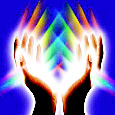Dr. Rajesh Bhola
India
May 10, 2013

India
May 10, 2013

At
the start, the mind and heart are in perfect sync. The unconditioned
mind listens to the heart, and delights in the miracles of daily life,
savours each taste, enjoys each breath, looks quite spontaneously with
eyes of love, and cries in the moments of pain and compassion. The
reason that we experience such bliss only rarely is that slowly our mind
gets conditioned.
There is great effort involved in fine tuning the heart with the mind.
It is like fine tuning the strings of a musical instrument; it will not
be possible to make good music if the strings are too hard or too
loose. If a person listens too much to the mind, he will be
unnecessarily hard on himself, because the impulses of the mind come
from a place beyond our conscious control; as long as the mind is alive,
controls and cravings of one sort or another will arise.
Being
in the field of care giving for special persons, I come across people
who have very good minds but cannot respond to compassion – for which
they need a bigger heart or, probably, need their heart to attain
control over their mind. A well-tuned heart and mind increases our
capacity for compassion and understanding. If we go with our heart,
it will work like a compass, and navigate us through our journey. It is
through our heart that we can change our conditioned behaviour. The
power of the mind should not be over-estimated, and the warmth of the
heart should not be under-estimated. The mind is like a clock, ticking
every second and reminding us to remain in control; while the heart is
like a saint sitting in the lap of nature, spreading warmth and glow.
Physiologically,
the heart has a complex, sophisticated intrinsic nervous system, and is
also called ‘a little mind’ in its own right. The ‘heart’s brain’ is an
intricate network of several types of neurons and neurotransmitters,
similar to those found in our brain. Its elaborate circuitry enables it to act independently of the brain – to learn, remember... and even feel and sense.
The heart is considered the source of emotions, passion and wisdom. We experience the feeling or sensation of love, kindness, compassion and other emotional states in the area of the heart. When
we first notice something, there is a fleeting moment of pure
awareness, before the thinking mind jumps in. It is a moment that is
non-verbal, pre-verbal; it has no thought in it; it is a moment of great
clarity. What is noticed is not yet ‘recognised’, but is simply part of
the whole flow of the process of life. Perception then fixates on ‘the
thing’, puts boundaries around it and labels it. When we see something
that ‘strikes’ our heart, the reflex-response is instant, and the
thinking mind jumps in more spontaneously and responds to the heart-felt
feeling. When we feel love, the mind instantly acknowledges it – ‘our
heart goes out for somebody’. In such moments the heart is the
navigator.
The
proper synchronisation of the heart with the mind provides us a sense
of peace – in every experience of our life. The mind is used to
wandering, keeping itself busy with planning, hoping, fantasising,
fearing, complaining and judging. It does not even know that something
might lie outside of its limited scope. The main effort is in bringing
the mind back (when it wanders), to make it aware of what is happening
at the moment. To be with the thought coming to the mind, to be with an
emotion erupting from the heart, to be with sensations, thoughts, the
whole spectrum of experience, seeing it clearly and dispassionately –
such co-ordination is not easy. A lot of energy is expended to just get out of the pull of habit – a kind of gravitational pull of the mind. When there is a perfect fusion of the heart and mind, we do not hold on so much, and make fewer demands on our existence. We
begin to relax, and ease more into the flow of things. We can delight
in the good things of life when they are present, and accept change
without protest when they end. The heart opens wider. It is in the deep
understanding of the suffering by the heart, that compassion comes to
full bloom. For when the heart and mind no longer hold on to anything,
life is fully open. There is no self-centeredness and hence no
separation. Love then is boundless, and ceaselessly responsive.
Dr. Rajesh Bhola
is President of Spastic Society of Gurgaon and is working for the cause
of children with autism, cerebral palsy, mental retardation and
multiple disabilities for more than 20 years.
No comments:
Post a Comment